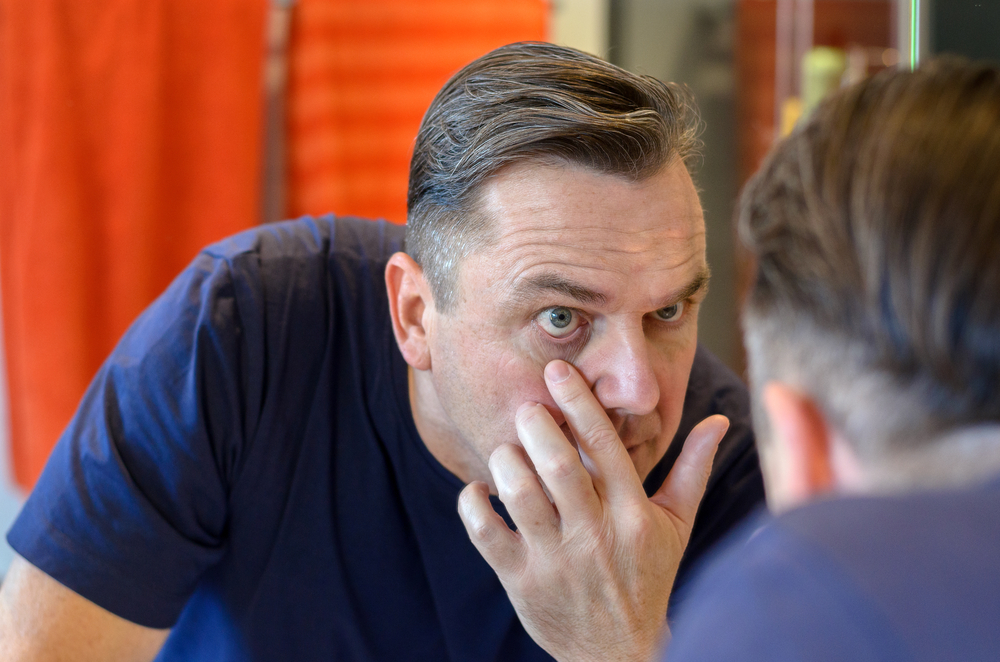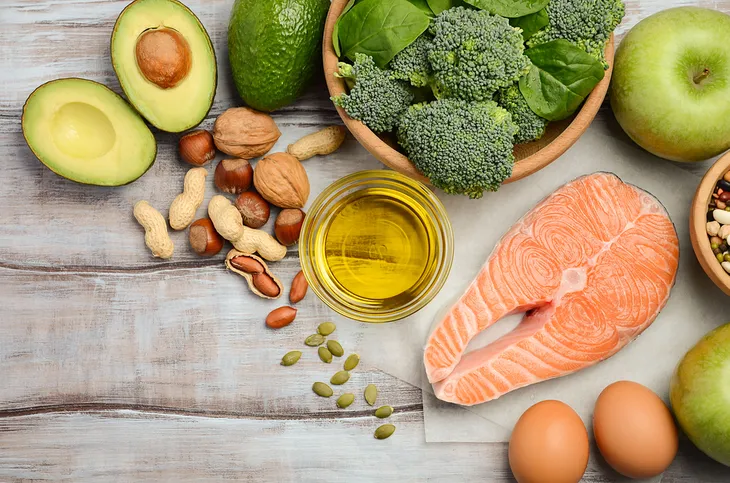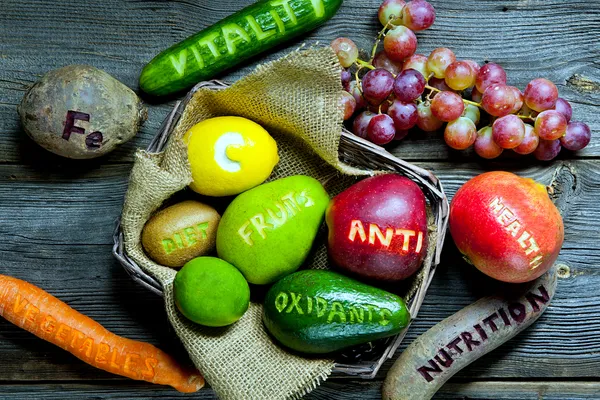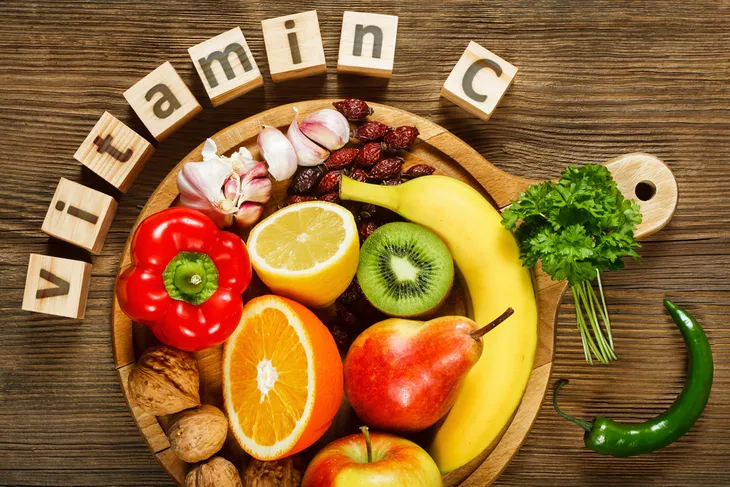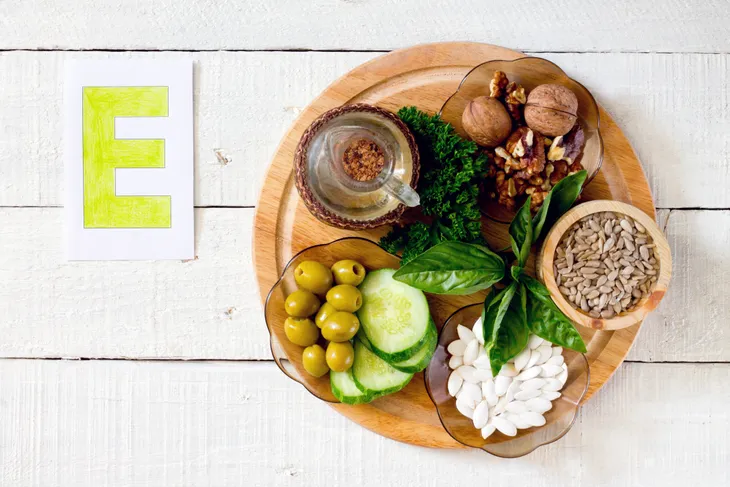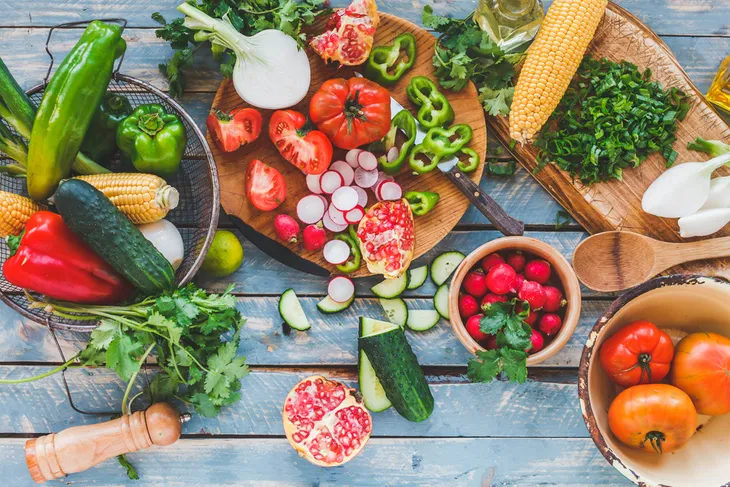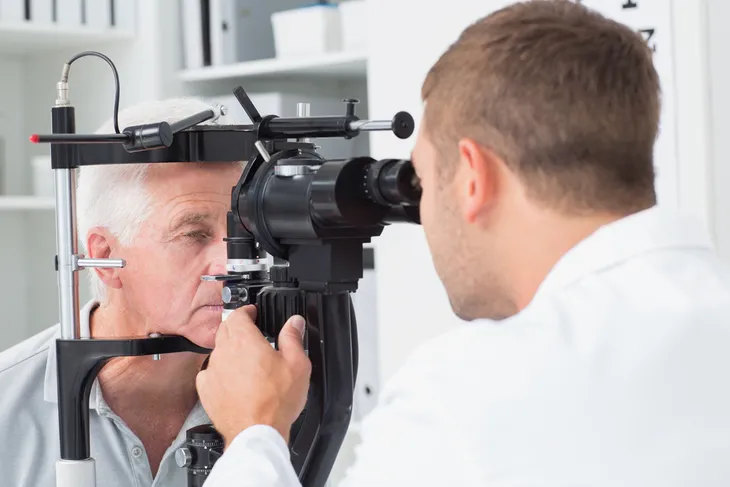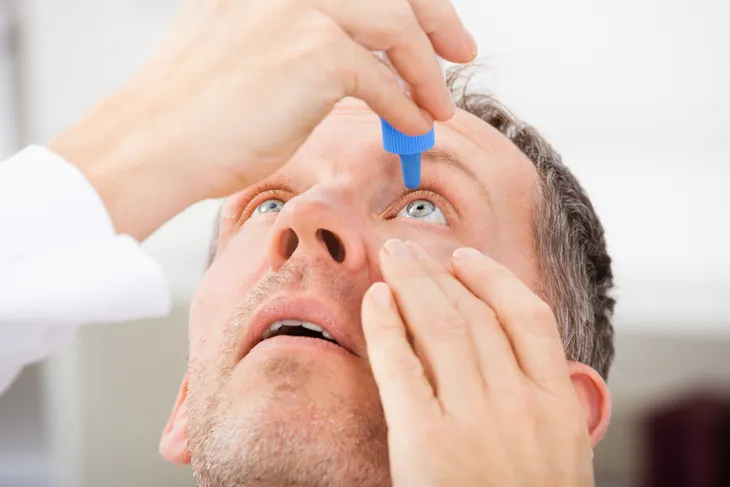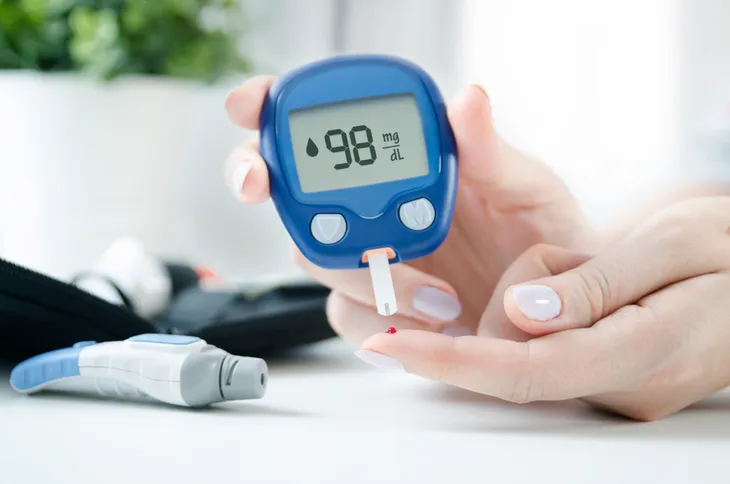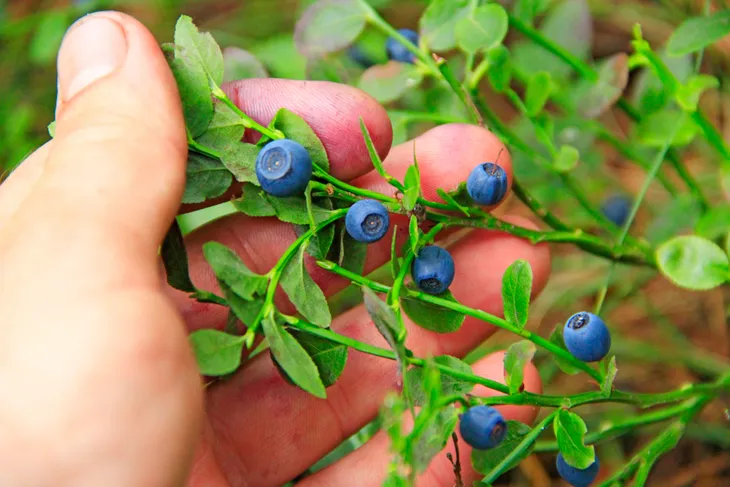Cataracts are one of the leading causes of blindness in the United States. The most common sign of this condition is when the lens of the eye becomes cloudy. It occurs when the lens, the route through which light rays pass onto the retina, which is made up of “water and protein fibers,” goes from being completely transparent to cloudy. This cloudiness occurs because when the protein fibers “clump together, the lens loses its clarity, leading to blurred vision and if left untreated, complete blindness,” writes VeryWell Health.
While there is no 100-percent effective way to prevent cataracts, especially when it comes to family history, there are steps we can take to reduce our risk and better our chances against developing this condition. Here’s a list of the 12 best ways to prevent cataracts…
Get Lots of Omega-3 Fatty Acids
There are many dietary choices a person can make to reduce their risk of cataracts. One of the first that we will talk about is omega-3 fatty acids. VeryWell Health lists them as a great protector against cataract development based on a study from 2005. This is because omega-3 fatty acids fight inflammation. The study examined 71,083 women and found that those with a higher omega-3 intake had a reduced risk of cataracts.
Dr. Axe lists another study which found that “women who ate fish at least three times a week rather than less than once a month lowered their risk of cataracts, and overall, total fish intake was inversely associated with cataract formation.”
The best sources of omega-3’s are in oily fish like salmon and sardines, chia seeds, and flaxseeds.
Eat Lots of Antioxidants
Foods that are loaded with antioxidants are among the healthiest because they offer all kinds of great nutrients. VeryWell Health lists eating antioxidant foods as one of the best ways to prevent cataracts and cites a 2008 study as proof.
This particular study looked at 35,551 women and found that those who consumed more lutein and zeaxanthin, which are the antioxidants found in yellow and dark-green leafy vegetables, were able to lower their chances of developing cataracts by 18-percent. “In addition to helping absorb harmful ultraviolet light, antioxidants can help stop damaged lens-fiber proteins from clumping together and causing cataracts,” writes VeryWell Health.
Eat Lots of Vitamin C
According to WebMD, some research suggests eating lots of vitamin C can help prevent cataracts. The source also lists some of the best sources of vitamin C which includes “citrus fruits (oranges, grapefruit, limes, etc), tomatoes and tomato juice, red and green peppers, kiwifruit, broccoli, strawberries, Brussels sprouts, cantaloupe, and potatoes.”
To back this claim up, Dr. Axe also cites a study published in the JAMA Ophthalmology which found that “vitamin C intake has been linked to a lower cataract risk, especially in people who tend to be deficient in this key nutrient.” The source then goes on to list citrus fruits, peppers, berries, tropical fruits, broccoli, and tomatoes as good sources of vitamin C.
Consume Vitamin A Rich Foods
Another great vitamin to eat is vitamin A, also known as beta-carotene because it can prevent vision loss from degenerative conditions like cataracts. People who are deficient in this vitamin will suffer from a dry cornea “which can lead to clouding of the front of the eye, corneal ulcers and vision loss,” explains Dr. Axe. It can also lead to retina damage which puts a person at risk for blindness, says All About Vision.
The best sources of vitamin A are carrots, sweet potatoes, and dark leafy greens, says Dr. Axe.
And Vitamin E
According to a study published in the journal Archives of Ophthalmology by researchers at Harvard Medical School, Harvard School of Public Health, and the Veterans Affairs Boston Healthcare System, “higher dietary intakes of lutein, zeaxanthin and vitamin E from food and supplements were associated with significantly decreased risk of cataract,” writes All About Vision.
When it comes to vitamin E the best sources are “vegetable oils like sunflower, safflower, or wheat germ,” writes WebMD. You can also get vitamin E from nuts like peanuts and some green veggies like spinach and broccoli, adds the source. You can get up to 8 to 14-milligrams of vitamin E from just two servings of nuts. Also, depending on what cereal you eat in the morning, it could be in that too. Check the nutrition label on the package to be sure.
Eat Lots of Fruits and Vegetables
Even without the risk of cataracts, people should be eating fruits and vegetables every day and lots of them! In addition to being part of a healthy diet, they also have tons of great health benefits including preventing cataracts. The reason these foods are so good for our eyes is because they contain plant chemicals known as phytochemicals. “The phytonutrients are antioxidants and anti-inflammatory agents that have been shown to prevent or delay the progression of eye disease, including cataracts,” writes Dr. Axe.
The source includes another study that suggests vegan and vegetarians are less likely to develop cataracts than those who eat meat. But to clarify, meat does not cause cataracts, it’s simply that plant foods promote good eye health.
Get Regular Eye Exams
While it might not seem necessary, especially for people who feel like their vision is perfectly fine, getting regular eye exams is encouraged. This is because some eye problems can be detected early on.
It’s even more important as we age. WebMD advises people between the ages of 40 and 64 to get a complete eye exam every 2 to 4-years, and those over the age of 64 should get one every 1 to 2-years. The source also notes that “complete” eye exams include dilating the pupils. People who are at a higher risk with a family history of eye diseases should make these visits more frequently.
Wear Sunglasses
Most of us don’t need reminding to wear sunglasses because it can be uncomfortable not to, but you’ll be glad to hear that they do more than just protect us from wrinkles and sunspots on our skin! They can also reduce our risk of developing cataracts. “Science shows that ultraviolet (UV) light can cause changes in your eyes. And researchers now know that UV light actually damages the proteins in your lens,” explains WebMD.
The source also includes some tips on what to look for when shopping for sunglasses like ones that “block out 99-percent to 100-percent of UVA and UVB rays,” fit your face in shape and frame, have a gray tint to help you see clearer, and ones that “screen out 75-percent to 90-percent of visible light.” (Here are some other Ways to Protect Your Eyes and Maintain Eye Health).
Eye Drops
Most people don’t use eye drops very often, unless they’re treating themselves with a prescription, suffering from allergies, or even dry eyes. However, researchers have recently discovered that they could be a simple and non-invasive way to prevent cataracts. Dr. Axe writes that the compound in drops “called lanosterol can improve vision by dissolving the clumped proteins that form cataracts.”
The source goes on to cite a 2015 study from the University of California which confirmed “eye drops containing lanosterol completely cleared the vision of three dogs with naturally occurring cataracts after six weeks of treatment.” It also stated that more research on humans is needed and it might not be effective on aggressive forms of cataracts.
Limit Alcohol Intake
Most of us enjoy having a drink here and there, but as with everything in life, moderation is key. Most of us already know that drinking is an activity that should be limited and practiced in moderation. There are several reasons for this, but when it comes to cataracts it’s because according to WebMD, there is research that shows those who drink less than two (standard) drinks a day have a lower risk of developing cataracts.
In fact, it even states that your risk might be lower than those who have never drank at all! Similar to this, there’s also research that shows drinking more than two drinks a day (a drink here is estimated to be about 20-grams of alcohol) can raise the risk of cataracts.
Don’t Smoke
There are LOTS of reasons a person should quit smoking or not start in the first place, but for the sake of this article, we’re going to talk about one. Not only is smoking bad for the heart and lungs, but it’s also bad for our eyes. People who smoke are at a higher risk for cataracts. “Smoking creates more free radicals in your eyes. These are chemicals that harm cells. Antioxidants — all those good chemicals that you get from fruits and vegetables — fight the bad chemicals. But smoking kills off the good chemicals,” explains WebMD. Cigarettes contain lots of chemicals that are bad for our body, and they also produce toxins that cause cataracts.
The good thing is that if you were a smoker in the past but successfully quit there’s a good chance you’re in the clear now even if you smoked over a long period of time. For those who are still smoking and having a hard time quitting, talk to your doctor about some programs or medications that will help.
Maintain Blood Sugar Levels
We don’t often hear about blood sugar levels unless we’re talking about diabetes, but actually, even people without diabetes should try to maintain levels because it can help prevent cataracts. There’s a reason people who have diabetes are more likely to develop eye conditions like glaucoma and cataracts. It’s because high blood sugar is a major risk factor.
“Your lens swells if your blood sugar stays too high for too long. Your lens also changes blood sugar into sorbitol. When this substance collects in the lens of your eye, you see less clearly, and a cataract may form,” writes WebMD.
Herbal Medicine
VeryWell Health lists herbal medicine as one of the options for a more natural-based treatment of cataracts. The herbal medicine they suggest is bilberry which is rich in antioxidants and turmeric, an “anti-inflammatory compound found in curry spice” that has shown through animal research that it can prevent cataracts. Dr. Axe goes on to explain that bilberry contains chemicals called anthocyanosides which give it the ability to “scavenge free radicals” making it “an excellent choice for multiple age-related ocular disorders.”
It also notes that when it comes to alternative medicine there isn’t much research so they’re unable to make any recommendations. It also warns about the dangers of self-treating instead of seeking treatment. The suggestions on this list are merely for preventative measures. Someone who’s suffering from cataracts should consult with their physician for proper treatment.
If for whatever reason you’re having trouble getting the previously listed vitamins from food sources, you may try taking high-quality supplements, but food sources are always the best bet.
